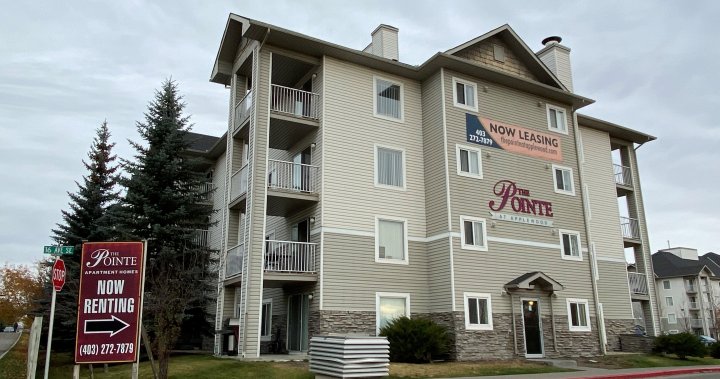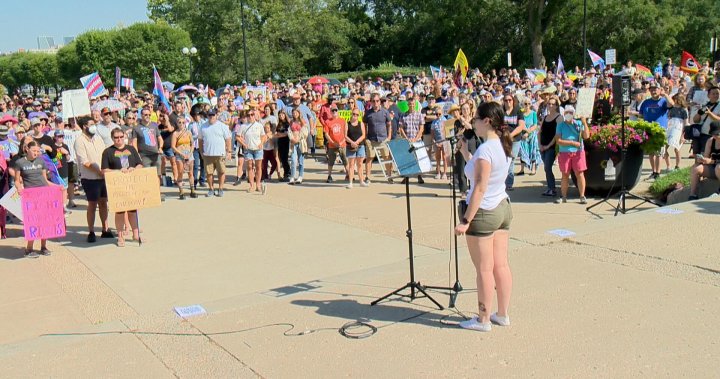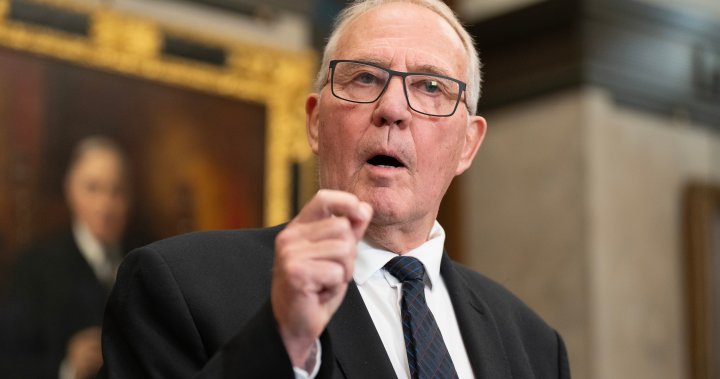Alberta’s official Opposition is hoping the government will help renters in the province during a housing crisis that’s seen rents increase by 20 per cent or more.
On Tuesday, MLA Janis Irwin tabled a private members bill that would seek caps on how much rent can be increased for the next four years.
It also would have the minister in charge of housing prescribe annual minimum housing builds and report on how much housing was built.
“Alberta is in a housing crisis and it is causing uncertainty. Every Albertan deserves to have an affordable place to call home,” Irwin, the Opposition’s housing critic, said.
Landlords in Alberta can currently raise rents as much as they like once a year.
Christina Crane, a renter in Calgary, said she wrote Premier Danielle Smith and Minister of Seniors, Community and Social Services Jason Nixon about her mother, whose mother is having to spend $1,300 a month on rent for a no-frills 500-square-foot apartment, and a single mother friend of hers who received notice of a 50 per cent rent increase.
“Since writing the minister, my rent has gone up 23 per cent already, from 14 per cent last year,” Crane said. “This is not a matter of living outside of our means or having too many subscriptions. It’s a matter of housing no longer being affordable in this province.
“It’s hard for people, for hardworking people, to get ahead in this province.”
Bill 205, dubbed the Housing Statues Amendment Act, would cap rent increases to two per cent for the first two years. It would then tie rent increases to inflation, to a maximum of five per cent.
In the last two years, annual changes to the monthly consumer price index have been as high as 8.4 per cent and as low as 1.9 per cent. October’s CPI was 2.1 per cent.
“The UCP has been open to other, let’s say, market interventions,” Irwin said. “They were open to a temporary cap on auto insurance.
“So, you know, if they were willing to take action on skyrocketing auto rates, I’m hopeful that they’ll be willing to do the same on skyrocketing rents.
“The rent increase cap is one piece of a much bigger strategy that this government needs to take to address the immediate pressures that Albertans are facing when it comes to renting.”
Recent increases in the Bank of Canada’s key interest rate are one factor putting upward pressure on rents in some cases.
Since the spring of 2022, that rate jumped from 0.25 per cent to five per cent, in response to rising inflation, effectively ending more than a decade of inexpensive borrowing. The interest rate hadn’t been above two per cent since late 2008.
That’s affecting decisions being made by so-called amateur landlords, like Jula Aquila.
Aquila lived in the home she bought in 2014 but in the summer of 2022, moved her and her son in with her boyfriend, and decided to rent out her house.
The mortgage on that house is up for renewal in October 2024.
“I’ve already spoken to the bank. We crunched some numbers and I know it’s going to go up about $500 a month,” Aquila said.
She said when she put her house up to rent, she priced it “appropriately, where I’m below market value but I’m high enough.”
Aquila anticipates having to pass along that increase in asset mortgage costs to her tenant, but a cap on rent increases might change that calculus.
“That would be super detrimental to me if I couldn’t raise it more than 2 per cent, because then that means I would have to figure out a way to take from my own income, from my job here, to supplement that house if I wanted to keep it,” she said. “That would be where I’m stuck between: do I keep my property or do I sell it?”
A statement from Nixon’s office was adamant in its opposition to such a bill.
“Alberta’s government will not introduce rent control,” Heather Barlow, Nixon’s press secretary, said in a prepared statement. “Alberta is focused on increasing the supply of housing across the province – that is why in her mandate letter to Minister Nixon the Premier tasked the minister with developing an affordable and attainable home ownership and rental strategy that focuses on incentivizing the construction of new homes and rental units and creating additional financing options for prospective homeowners, while removing barriers for both homebuyers and renters.”
Those in the homebuilding industry say Alberta and Canada are a long way from building four times more homes than are built currently to meet estimated needs.
Mike Martens, president of the Independent Contractors and Businesses Association, said there are things policymakers across all orders of government can do to help increase construction capacity, like encouraging densification, improving public transit, and reducing regulatory burden by improving approval timelines.
“Calgary and Edmonton are doing a lot of great things, but they’re doing things that should have been done 20 years ago and our supply is behind,” Martens said.
“We have not increased our capacity to build homes. There’s a whole bunch of reasons for that. There’s financing, there’s workforce, there’s taxation, there’s regulations. These are all part of it.”
Martens criticized the NDP for not considering the “business end” of the housing crisis and for focusing on the consumer end.
“You need to ask the question, why is the rent inflating? Because there’s not enough supply,” Martens said. “So this is a vicious circle.”




